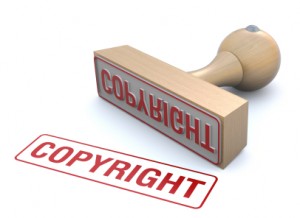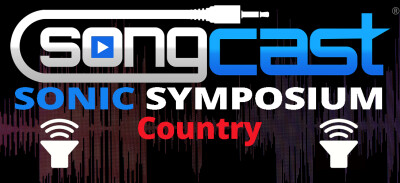Articles on copyrighting music seem to always come with a legal caveat in small print somewhere, usually at the end. But let’s put this important disclaimer right up front: before you take any copyright advice contained herein (or anywhere else) at face value, consult with your attorney. If you don’t have an attorney, and are worried about copyright issues concerning your music, it’s time to get an attorney. Taking that into consideration, here’s a simplified, nutshell guide to establishing basic first
somewhere, usually at the end. But let’s put this important disclaimer right up front: before you take any copyright advice contained herein (or anywhere else) at face value, consult with your attorney. If you don’t have an attorney, and are worried about copyright issues concerning your music, it’s time to get an attorney. Taking that into consideration, here’s a simplified, nutshell guide to establishing basic first
time copyrights for your music, with as little egg-headed legalese as possible.
The free and easy way
In the same way that the Geneva Convention establishes international standards of law for war victims, the Berne Convention protects literary and artistic works by establishing an international standard of copyright for creators. In the simplest of terms, once a song is set into tangible form, such as on paper, audio tape or a CD, the creator automatically becomes the copyright holder. Of course, it helps if others know about the song after it’s set into tangible form. So get your music out there to the public. If a copyright dispute should ever come up, said public (i.e., friends, family, fans, music journalists who got review copies of your music) can go to bat for you in the legal arena.
The more rock solid, paid way
For extra protection, pay a fee to register your works officially with the U.S. Copyright Office. You can do this via mail or online. It’s cheaper and faster to do it online. You’ll have to set up an account for online registration, then your songs are submitted electronically. More info on fees (currently ranging from $35-$65 for basic registration), and
registering by mail or online, can be found at the government website www.copyright.gov. Keep in mind that the fee is per song/work, so it can get pricey if you’re registering your entire catalog. When your works are officially registered, they become part of the Library of Congress, and it’s also easier to get compensated should your copyright litigation ever end up in court.
The mail-yourself-your-own-song myth
Called the “poor man’s copyright,” the technique of mailing yourself a copy of your song and keeping it unopened with the postmark establishing the copyright date has long been discredited, so save some stamps and don’t waste your time.
Also, for an added layer of protection, don’t forget to register your songs with your performing rights organization (PRO). If you don’t have a PRO, you should join one. It’s free. ASCAP, BMI and SESAC are the three biggies that most artists turn to for public performance royalties. But that’s a completely different article.











































Comments
No comment